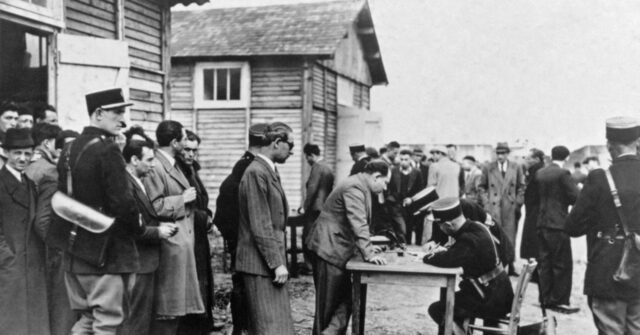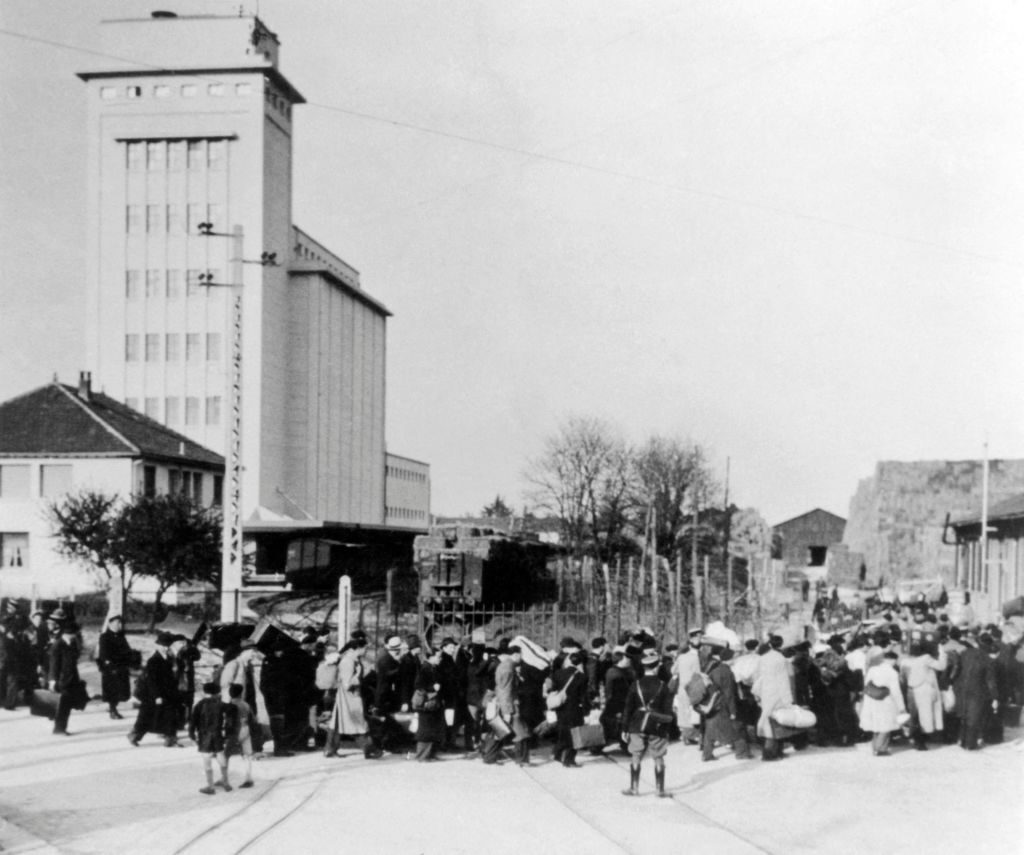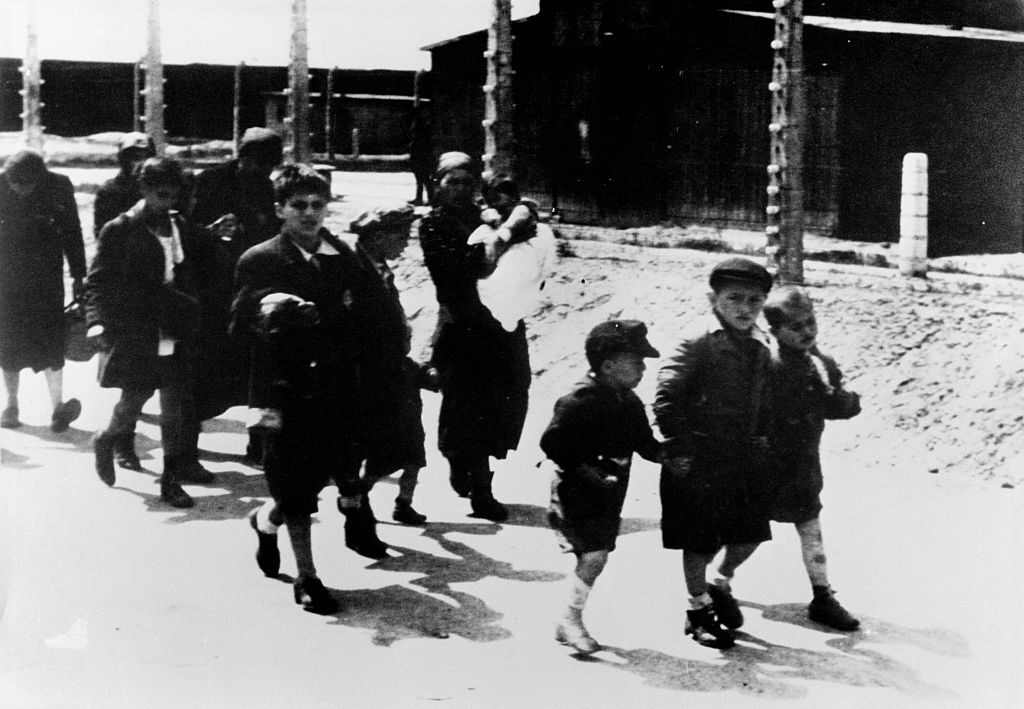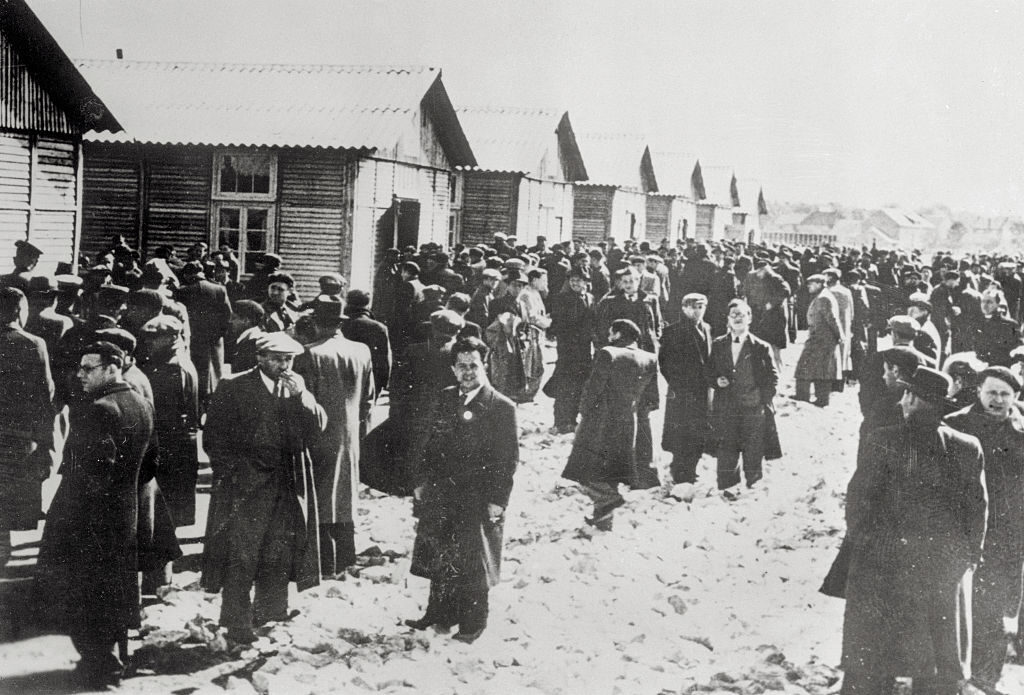
Paris (AFP) – French President Emmanuel Macron will on Sunday mark the 80th anniversary of the wartime round-up of Jews in France at a former railway station used to deport them to Auschwitz.
With him at Pithiviers station, 100 kilometres (60 miles) south of Paris, will be some of the handful of the survivors of those deported on the eight convoys sent to the Nazi camp.
Macron’s speech will express his concern over the enduring threat of anti-semitism, which “still lurks and sometimes in an insidious way”, said an official from his office.
He will denounce “historical revisionism” — in particular over the role of France’s war-time leader Philippe Petain, who collaborated with the Nazi regime, the official added.
Also at ceremony will be historian and renowned Nazi hunter Serge Klarsfeld, as well as a survivor of the camps, Ginette Kolinka.
The head of France’s rail network, Jean-Pierre Farandou, will also attend.
Macron is expected at the former station of Pithiviers at around 3:00 pm (1300 GMT).
The building, which has not served passengers since the end of the 1960, has been converted into a memorial to the Holocaust which opened earlier this month.
Jewish deportees arrive in the transit camp of Pithiviers on May 1941. According to the 04 October 1940 anti-jewish law and under German pressure more than 3,000 of them were arrested by the Paris police headquarters and imprisoned in the transit camps of Pithiviers and Beaune-la-Rolande. Most of them were deported to the Auschwitz concentration camp. (AFP via Getty Images)
“This station is the place where the French event becomes European genocide,” said Jacques Fredj, the director of the Shoah Memorial, which commemorates the French deportations.
“It is a place of memory unique in France.”
The new 400 meter squared centre is mainly intended for scholars, said Fredj.
“It’s a priority, in the face of the rise in anti-semitism, racism and conspiracy theories.”
Vel d’Hiv deportation: in the night of 15th and 16th July 1942, 9000 policemen and French officers arrested in Paris and in the suburbs 12884 Jews including 4051 children. They were all taken to the Drancy camps, Pithiviers or Beaune-la-Rolande before being deported to Auschwitz. (Antoine GYORI/Sygma via Getty )
Some of the 13,000 Jews arrested in Paris and its suburbs by French officials on the orders of the Nazi occupiers passed through the station. 4,115 were children.
The incident has become known as the Vel d’Hiv round-ups because the French police took 8,160 of the Jews, including the old and sick, to the Velodrome d’Hiver, a cycle racing track in Paris’s 15th arrondissement.
From there, they were taken to camps at Pithiviers and other locations and onto the Nazi concentration camps. Only a few dozen ever returned.
France ‘not finished with’ anti-semitism
Sunday’s speech will acknowledge that “French society is not finished with anti-semitism”, said Macron’s office.
The comments come just a few months after failed presidential candidate, the far-right journalist and polemicist Eric Zemmour, argued that Petain had in fact saved French Jews during the war years.
The claim is contested by most historians, who point to the wartime leader’s well-documented anti-Semitism.
Macron was himself criticised for saying in 2018 that Petain had been a “great soldier” during World War I, even if he had subsequently made “fatal choices”.
The French president’s speech on Sunday is expected to continue the work of his predecessor Jacques Chirac who in 1995, 50 years after the Vel d’Hiv round-ups, acknowledged France’s responsibility for what had happened.
Jewish deportees shown on their arrival at the Pithiviers concentration camp, where they joined their fellow sufferers. (AFP/Getty)
“France, on that day, committed the irreparable,” said Chirac, in what is now considered a landmark speech.
After Chirac, Francois Hollande went further during his presidency, speaking in a 2012 speech of a crime “committed in France, by France”.
Then in 2017 Macron, newly elected as president, reaffirmed France’s responsibility for the round-up in a speech marking its 75th anniversary and in the presence of then Israeli premier Benjamin Netanyahu.




